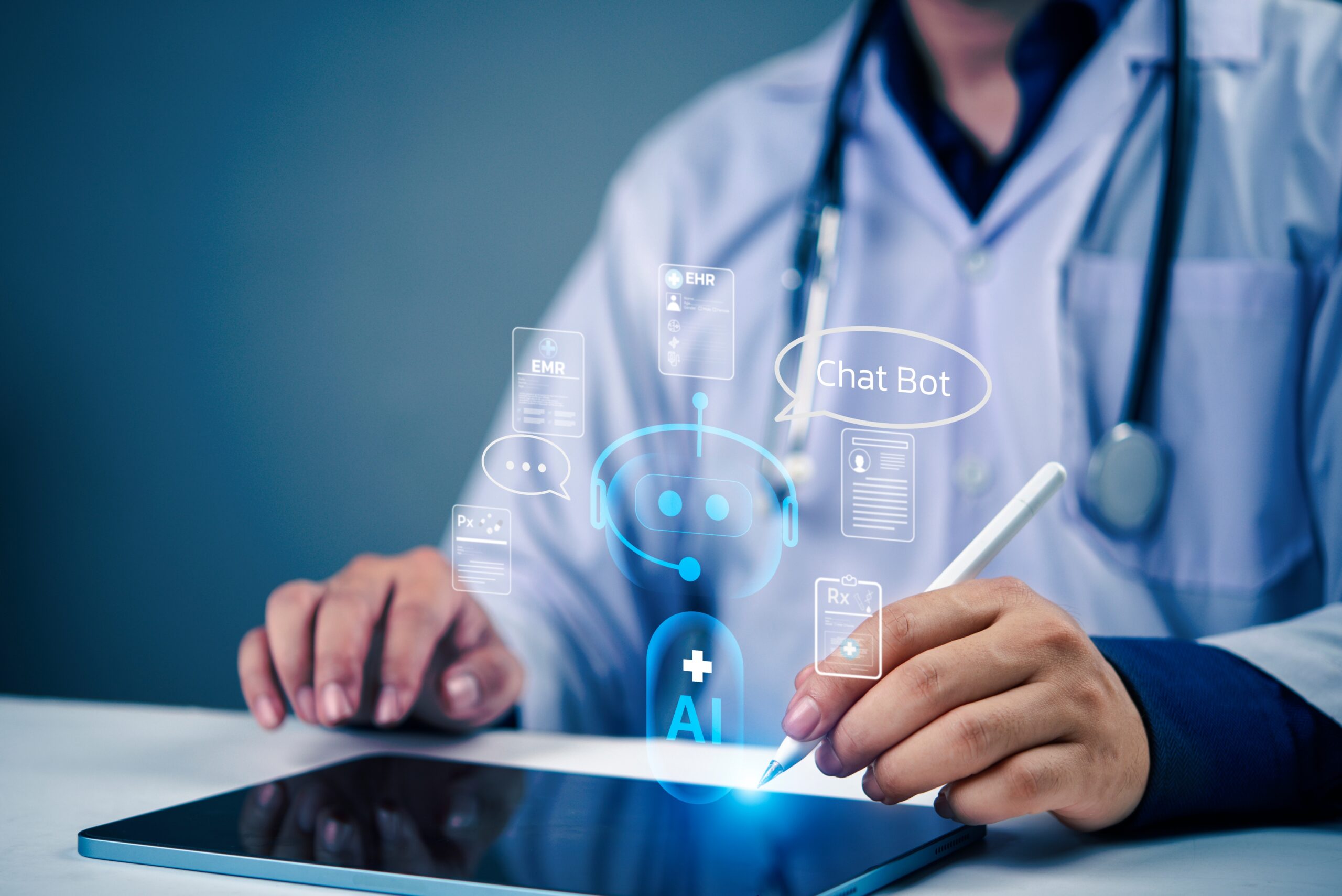An intelligent medical application platform — a new milestone for Vietnam’s healthcare
Digital transformation is creating a powerful wave of change in modern medicine, as data and artificial intelligence begin to participate in diagnosis, treatment, and disease prevention. In Vietnam, the development of an intelligent healthcare application platform is considered a strategic step to connect research, clinical practice, and health administration within a unified ecosystem. This article analyzes the significance of this model for the future of Vietnamese healthcare — where technology becomes a supportive tool, while humans remain at the center of all health decisions

The Digital Transformation Landscape in Vietnam’s Healthcare Sector
Vietnam’s healthcare sector is entering a period of rapid transformation as data, technology, and digital governance models move to the center of clinical operations. From electronic medical records to online consultation systems, various initiatives have been implemented to streamline processes and improve transparency for patients. However, most systems remain disconnected from one another, leaving national healthcare data fragmented and difficult to leverage effectively.
Shifts in patient behavior after the pandemic have also become a strong catalyst for change. People are now accustomed to remote health consultations, accessing medical information through mobile devices, and tracking personal health indicators via apps. This has created an urgent need for an intelligent healthcare platform capable of integrating data from multiple sources, analyzing information in real time, and supporting personalized healthcare.
From the regulatory perspective, the Ministry of Health has set a goal that by 2030, all public healthcare facilities must achieve comprehensive digital transformation, with artificial intelligence (AI) and big data serving as core foundations. This context marks the beginning of a new phase — where technology is not merely an operational tool, but a fundamental infrastructure enabling Vietnam’s healthcare system to move closer to a proactive, intelligent, and sustainable model of care.
What is an intelligent healthcare application platform?
An intelligent healthcare application platform is understood as an integrated technology system where data, people, and medical processes are connected within a unified digital infrastructure. Its key distinction lies in the ability to collect, process, and analyze large volumes of health information in real time, enabling patients, physicians, and health administrators to gain a more comprehensive view of medical conditions.
“These platforms go beyond digitizing medical records or scheduling appointments; they aim to proactively predict risks, support clinical decision-making, and enable early disease prevention. When data is standardized and interconnected, each consultation, test result, or prescription becomes part of a unified health record, allowing monitoring and treatment to become far more accurate.
In many countries, intelligent healthcare platforms are considered the ‘backbone’ of national digital health transformation. They help healthcare systems operate with greater transparency, optimize resources, and expand access to medical services in regions that previously faced limitations in infrastructure or healthcare workforce.

How an Intelligent Healthcare Platform Works
“An intelligent healthcare platform typically operates on three core layers: data, artificial intelligence, and user experience. At the data layer, the system collects information from hospitals, clinics, wearable devices, or personal health applications. This data is then cleaned, encrypted, and standardized into a unified format to ensure accuracy and security.
The artificial intelligence layer is responsible for analyzing data — identifying symptom patterns, predicting risks, and providing initial recommendations for patients or physicians. As users interact with the system, the AI can learn from their feedback, gradually improving the accuracy and relevance of its suggestions over time.
At the user experience layer, the platform provides an intuitive interface that allows individuals to easily monitor their health status, book appointments, or receive consultations. The key is that all these activities occur within a unified and synchronized system, transforming healthcare from a series of disconnected services into a continuous and intelligent care network.
The Role of Artificial Intelligence in Modern Healthcare Systems
Artificial intelligence is becoming a central tool driving healthcare into a new era of automation and precise prediction. At the administrative level, AI can aggregate data from millions of medical records to identify epidemiological trends, support policy planning, and optimize resource allocation. In clinical practice, AI assists physicians in imaging diagnosis, laboratory analysis, and recommending treatment pathways based on global medical datasets.
For individuals, AI is transforming the approach to healthcare — shifting from ‘treating illness when it occurs’ to ‘monitoring health to prevent disease.’ Artificial intelligence applications help people better understand their bodies, receive early warnings when abnormalities arise, and obtain personalized guidance tailored to their age, medical history, and lifestyle.
With its ability to learn continuously, AI not only enhances treatment effectiveness but also expands access to high-quality healthcare for all population groups. As Vietnam’s population ages rapidly and the healthcare system faces increasing pressure, the adoption of AI is regarded as a strategic step — one that carries not only technological significance but also profound social value.
Trivita AI’s Vision for Developing Vietnam’s Healthcare AI Ecosystem
In the national digital health transformation, Vietnamese technology enterprises are playing an increasingly important role, especially in the research and application of artificial intelligence. Trivita AI is one of the organizations pursuing a human-centered approach — developing technology not to replace people, but to empower physicians, patients, and the healthcare system through data and digital knowledge
Trivita AI’s vision is to build an interdisciplinary AI ecosystem, with healthcare as a central pillar. The platforms developed by the company aim to connect three key domains: physical health, mental health, and career orientation, in order to create a comprehensive support system for individuals. This approach aligns with global trends in modern healthcare — where care is not limited to disease treatment, but also expands into prevention and quality-of-life enhancement
Beyond technological capability, Trivita AI places strong emphasis on ethics and transparency in healthcare AI. All models developed adhere to strict data safety standards and are designed to be explainable and verifiable. These elements are essential for integrating AI deeply into healthcare infrastructure while maintaining public trust. The combination of medical expertise, data science, and principles of transparency is helping Vietnam move closer to building a safe, effective, and human-centered digital healthcare ecosystem
From a long-term perspective, Trivita AI not only contributes to technological transfer but also strengthens the inherent capabilities of Vietnam’s healthcare sector. By combining local research with international standards and a global academic advisory network, AI solutions developed in Vietnam gain high practical applicability and deliver sustainable social impact.
The Future Direction of Vietnam’s Healthcare in the AI Era
“Digital transformation is no longer an option but an essential requirement for Vietnam’s healthcare system. The rise of intelligent healthcare application platforms is creating new opportunities for data, technology, and people to operate within a unified structure. As processes become digitized and automated, healthcare not only becomes faster and more accurate but also enables proactive, population-wide health management.
Artificial intelligence is serving as a key catalyst in this transformation. At the individual level, AI helps people better understand their own health; at the clinical level, it supports physicians in making accurate decisions; and at the administrative level, it enables the healthcare sector to forecast and plan policies based on data. All of these efforts move the system toward greater transparency, efficiency, and long-term sustainability.
Vietnam is standing at a pivotal moment to define the direction of its smart healthcare future. The success of this transformation depends not only on technological capability but also on a human-centered mindset — a principle that many domestic organizations, including Trivita AI, are steadfastly pursuing. When technology is developed upon human values, the healthcare system is not only modernized but also becomes more accessible, safer, and more equitable for all citizens


